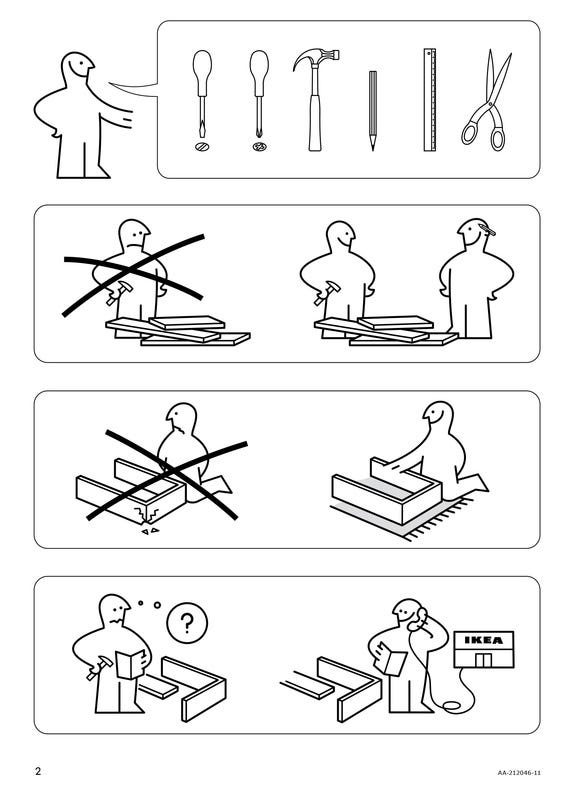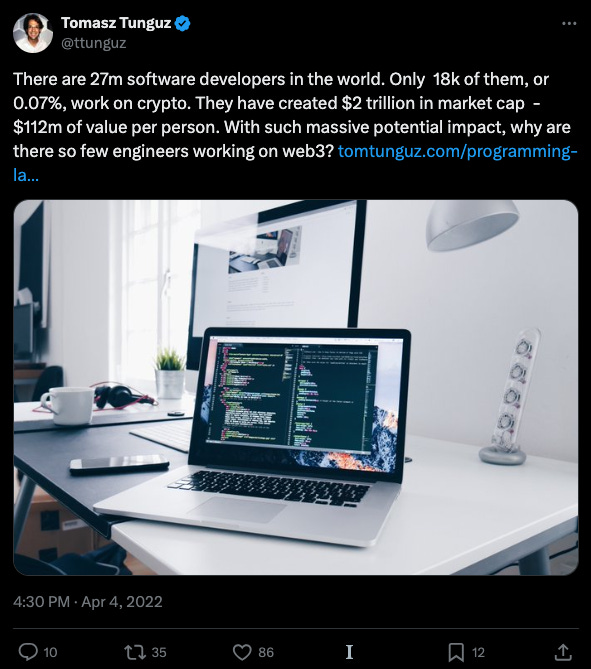Engineering Has No Value
The role of engineers in a post-agent world.
I have to admit – I haven't written a line of code in months.
I would like to. It’s just not the most impactful thing for the business right now.
(Not according to the Founder Loop.)
And the Engineers I work with spend more time thinking, analyzing, researching, designing than writing code.
So the Devin announcement led to some interesting conversation. A full-stack AI software engineer that can complete simple compound software engineering tasks end-to-end.
Many people rushed to the conclusion that engineers are becoming irrelevant.
Even concluding that their kids shouldn't practice engineering since it’s becoming a commodity.
And they are not wrong, the productive act of coding, engineering and implementation has a growing discount rate attached to it.
But the value was never in the “engineering” work produced by an engineer.
The value is in the engineers themselves.
Master Builders → Architects
Consider the evolution of architecture starting with Master Builders. These used to be vertically integrated architects in ancient times that knew both how to design, plan and execute constructions.
They understood materials, sculpture, geometry and the practical details of building monumental buildings.
The modern role of an “architect” only emerged during the 16th century when Giorgio Vasari published The Lives of the Most Excellent Painters, Sculptors, and Architects.
Nowadays, there is a clean separation between architecture and construction with a distinct pay gap.
Technology has also continued to improve construction and assembly, allowing humans to communicate guidelines and protocols from construction.
Additive manufacturing takes it one step further, allowing construction to happen largely without human intervention.
Do architects completely avoid construction?
Not really, in fact many romanticize it and want to be more in touch with the construction process, becoming master builders of their own private wooden tree houses and forest huts.
And personally, I did code a little in December for a fun paper I'm writing.
I guess I'm building my own wooden hut.
The question you should be asking
One could try to drive parallels of this transition to software engineering which may lead to postulating that every engineer will become a software architect.
But this is missing the point. Software architecture is a holistic activity that is much less prescriptive than traditional architecture. In fact, engineers often have to refine or “architect” the details of their own individual features.
Instead of trying to predict when engineers will stop coding, a better question to ask is who benefits the most from this technology given how impactful it could be.
The answer to that is still probably Engineers.
And crypto stands to benefit a lot.
Tom Tungusz estimated that crypto engineers on average created over $100M of value per developer.
Imagine what giving them even more leverage could do?







